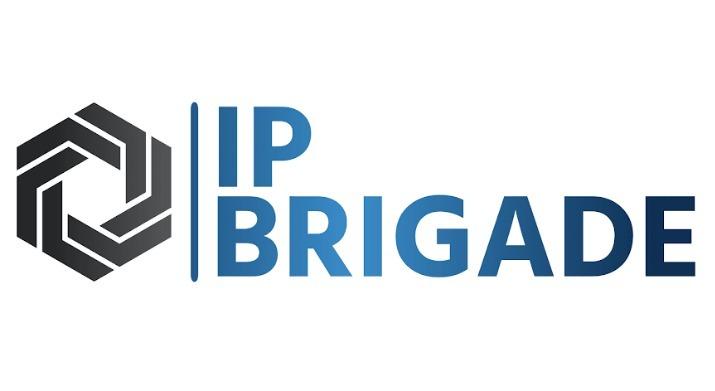The world of finance is on the verge of a technological upheaval. At the heart of this transformation lies quantum computing
These are the very algorithms that secure:
Quantum computers, unlike classical computers, leverage the principles of quantum mechanics to perform computations
Welcome to the age of quantum-safe patents, where intellectual property is no longer just a competitive edge
The world of finance is on the verge of a technological upheaval. At the heart of this transformation lies quantum computing
Are we patenting the future wisely?
Quantum‑Safe Patents: Preparing for the Next Financial Revolution
Online banking and transactions Blockchain-based systems Stock exchanges Identity and authentication systems Government-level financial communications
When a quantum computer reaches a level of maturity called “quantum supremacy”, it could decrypt sensitive data within minutes—data that might have taken a classical computer thousands of years.
Enter Quantum-Safe Cryptography (QSC)
To counter this threat, researchers are developing quantum-safe encryption methods also known as post-quantum cryptography (PQC). These algorithms are designed to be secure against both classical and quantum attacks.
The U.S. National Institute of Standards and Technology (NIST) has already launched a global initiative to standardize PQC, and many of these algorithms are now making their way into patents.
Why Patents Matter in the Quantum Arms Race
Patents are the foundation of strategic advantage in technology races. In the quantum arena, they do much more:
Safeguard national security interests
Protect critical financial infrastructure
Enable monetization of core technologies
Ensure compliance with emerging regulatory frameworks
According to a recent EconSight report, top tech firms and governments are aggressively patenting quantum-safe technologies, indicating that a global race is underway not just to develop quantum computing—but to defend against it.
EconSight’s research reveals that innovation in quantum-safe patents is heavily concentrated in a few regions and among key players. Here are some frontrunners:
Alibaba and Baidu These Chinese tech giants are rapidly catching up. Their patents often focus on blockchain applications that are resistant to quantum threats.
Thales and Airbus
European defense and aerospace giants are building encryption tools for quantum-resilient secure communications.
Startups and Universities
Small companies like PQShield, QuintessenceLabs, and academic collaborations are playing a huge role, often licensing their patented tech to larger firms.
The Financial Sector’s Vulnerability—and Opportunity
Banks, fintech companies, insurance providers, and even central banks rely on encryption for:
Secure fund transfers Trading algorithms Client data protection Fraud detection systems Blockchain assets and CBDCs (Central Bank Digital Currencies)
Quantum computing can invalidate the very foundation of trust in these systems.
What Financial Institutions Should Do:
Audit existing cryptographic infrastructure to identify vulnerable points Invest in quantum-resistant software and security services File patents for proprietary cryptographic innovations Collaborate with tech companies developing PQC standards Train compliance teams for upcoming regulations and IP management
A Surge in Quantum-Safe Patent Applications
From 2018 to 2024, there has been a steep rise in patent filings mentioning “quantum-safe,” “quantum-resistant,” or “post-quantum cryptography.” According to EconSight, over 60% of these patents are related directly or indirectly to financial applications.
Global policy and regulatory alignment indicates a shift from theoretical exploration to practical implementation.
Governments across the globe are taking note.
U.S. Quantum Initiative Act: Encourages government agencies and contractors to adopt quantum-resistant protocols
EU’s Digital Europe Programme: Funds R&D for secure digital infrastructures
India’s National Mission on Quantum Technologies & Applications: Focuses on indigenous development and IP creation
Aligning your patent strategy with these initiatives can provide financial and regulatory leverage.
Focus on Interoperability Ensure your innovations work with existing infrastructure while providing quantum resistance.
Collaborate with Academia Partnering with universities can provide a steady stream of research to turn into patentable IP.
File Broad Claims, Then Narrow Start with broader claims covering systems and applications, then file continuations with specific use-cases in finance.
Watch for Standard-Essential Patents (SEPs) PQC algorithms approved by NIST may become standards. Owning patents around these can be highly profitable.
Track Competitors and Trends Use patent analytics tools to monitor filings by key rivals in your domain.
At IPBrigade, we actively engage with global IP communities. You can find our profiles and contributions across several reputable platforms: – Connect with us on this leading IP forum like: orisonbooks , ko-fi , where we discuss patent law trends. – View our official business profile for services and contact details. – Explore our community listings among other IP professionals.
Leave a comment
Share your thoughts with us!
Empowering Innovation: IP Brigade specialize in creating, managing, and monetizing intellectual property to fuel your success.

CONTACT US
+1-267-855-3990

info@ipbrigade.com
Working Hours

Mon-Sat: 9:00 AM-6:00 PM
US Address

1401 E Bristol St Office #2 - V95, Philadelphia, PA 19124
India Address

Plot No. 15, Ground Floor, Sai Enclave, Sector 23, Dwarka, New Delhi, Delhi, 110077
Copyright © 2024 IP BRIGADE INC. All Rights Reserved.



